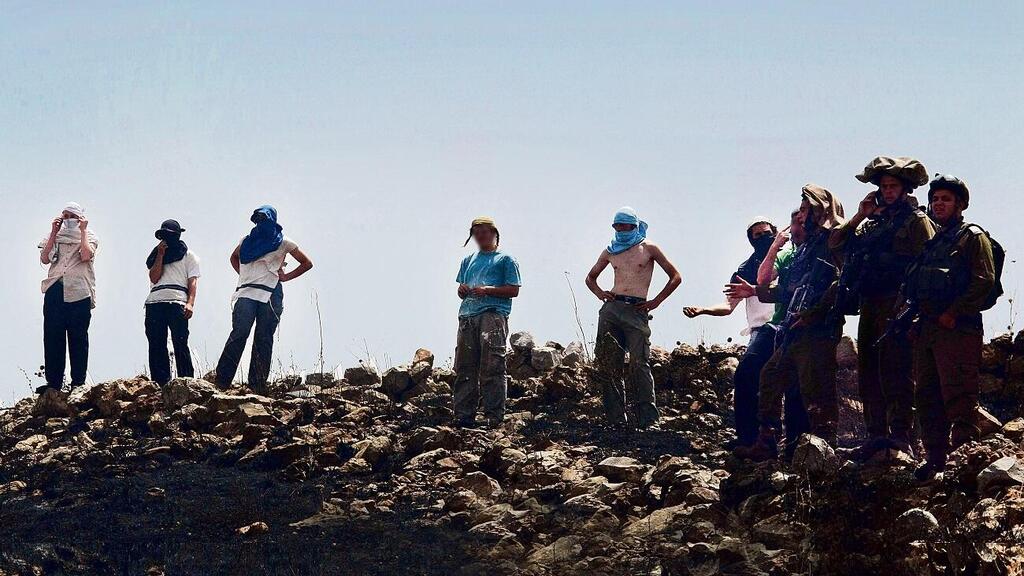Getting your Trinity Audio player ready...
In the wake of U.S. and British sanctions on four West Bank settlers, the French Foreign Ministry announced on Tuesday the ban on the entry of 28 "extremist" settlers. According to the ministry, the 28 settlers on whom the sanctions were imposed "are guilty of violence against the Palestinian population in the West Bank." The announcement did not name the settlers who have been sanctioned.
More stories:
"These measures come as violence perpetrated by settlers against the Palestinian population has increased in recent months. France reaffirms its firm condemnation of this unacceptable violence," the ministry said in a statement.
The Israeli-Palestinian NGO Combatants for Peace applauded the French announcement. "We stand with the French government for taking an unequivocal position against settler violence. While their representatives are sitting in the government, the hilltop youth have lost all restraint. It is a moral obligation to intervene. It is good that such a necessary decision has been reached on the issue."
French Foreign Minister Stephane Sejourne has expressed concern about settler violence last week. In a meeting with his Israeli colleague Israel Katz he noted that "it is important that we talk about the radicalization of extremist settlers who fuel some of our concerns."
"It is forbidden under any circumstances to compare and put the settlers in the same category Hamas," Katz replied. "The State of Israel is a state of law and it will be enforced against anyone who violates the law."
The U.S. administration announced about two weeks ago that it had issued sanctions against settlers who attacked Palestinians in the West Bank. The administration announced that the measure was applied to "four people involved in actions that threaten stability, peace and security in the region," all known Hilltop Youth activists.
Last week, the Bank of Israel officially announced that it will not intervene in the decisions of banks in Israel to block and freeze the accounts of Israelis suspected of violent activity in the West Bank against Palestinians. This went against a request by Finance Minister Bezalel Smotrich , who asked the banks not to freeze the settlers' accounts. Meanwhile, Canada also announced that it's banks would join the move.
On Monday, Britain also announced that it was imposing sanctions on "four extremist Israeli settlers," who it claimed had violated the "human rights of Palestinian communities in the West Bank." The British Foreign Office noted that "in the past year, the violence of extremist settlers in the West Bank has reached an unprecedented level. Some of the residents of the illegal Israeli outposts and settlements have used violence, harassment and threats to pressure Palestinian communities to leave their lands." One of the sanctioned settlers, Yinon Levy, appears on both the U.S. and U.K. lists.
At the same time, a series of elements within the European Union are pushing for the formation of a "black list" of violent settlers, whose entry into EU countries would be prohibited and economic sanctions imposed on them. The decision must receive the consent of all 27 member states of the Union in order to pass.
At this point, two countries oppose the sanctions: Hungary and the Czech Republic. According to reports reaching Jerusalem, while the Hungarian refusal is not expected to change soon, the Czechs are already "less opposed" to the move and may change their decision and remove their veto in the future. Until recently, Germany held back such a sanctions regime.



